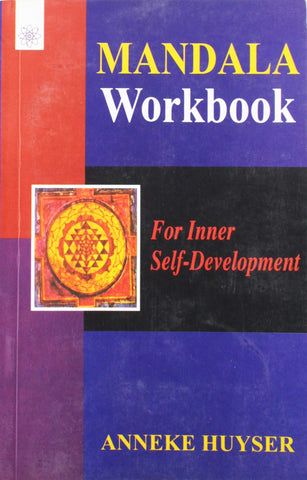Your cart is empty now.
The Lotus Sutra is one of the Buddhist texts which can give a real Idea of the force, originality, influence, and value of the Buddhist Positivene;5s. This essay on Buddhist Positiveness was originally written (in 1994) by Fernando Tola as an answer to the Catholic Pope's criticism of Buddhism, according to which Buddhism is a 'negative' religion; and this essay was presented afterward, in an abridged version, as a paper, in The International Conference of The International Association of Buddhist Studies held in Lausanne, Switzerland (in 1999). The topics which are dealt with in this book are the conflict of change in Buddhism; the conflict of change in the Lotus Sutra; apologetics and harmony in the Lotus Sutra and Bhavya; sunyata in the Lotus Sutra; some reflections that the translation of the saddharmapundarikasutra (from its original text into Spanish) provoked in the authors regarding some linguistic, semantic and communication problems; the meaning of the infinite numbers in the Lotus Sutra; beginninglessness of the Veda and the Dharma, names of the Bhiksus and Bodhisattvas in the Lotus Sutra; Buddhist spirituality: positiveness in the Lotus Sutra; Buddhism and family; attitudes in regard to food in Ancient India, and some important reviews concerning the Lotus Sutra.
Fernando Tola and Carmen Dragonetti have been Professors at the National Universities of San Marcos (Lima, Peru) and Buenos Aires (Argentina). They undertook investigation work of the National Council for Scientific Research (CONICET) of Argentina, in the area of Indian Philosophy. They were Vice-President and President respectively of the Institute of Buddhist Studies Foundation (FIEB) (Argentina); Directors of the Revista de Estudios Budistas (Journal of Buddhist Studies) REB, edited in Mexico; and Overseas Research fellows of The International Institute for Buddhist Studies (Tokyo).
Independently or in collaboration, they have published several books in Spanish on Indian Culture, especially on Indian Philosophy, such as Yoga and Mysticism of India, Philosophy and Literature of India, Mahayana Buddhism; several translations into Spanish of important Sanskrit and Pali texts, as Hymns of the Rig Veda, Hymns of the Atharva Veda, Upanishads, Bhagavadgita, Upadesasahasri, Gita Govinda, Amarusataka, Damodara Gupta, Dhammapada, Udana, Digha Nikaya, Sutta Nipata. In English they have published The Yoga sutras of Patanjali, Nagarjuna's Refutation of Logic, Vaidalyapraparana, Being as Consciousness and On Voidness, A Study on Buddhist Nihilism.
This book contains some of the results of the research work we carried out in the Fundacion Instituto de Estudios Budistas FIEB, of Buenos Aires, Argentina, thanks to the support of a subsidy received, during the years 1998 and 1999 from the Agencia National de Promocion Cientifica y Technologica of Argentina, for the Project PICT 04-00000-01611: EI Sutra del Loto (Saddharmapundarikasutra) Doctrinas, Problemas, Actualidad (“The Lotus Sutra (Saddharmapundarikasutra): Doctrines Problems Actuality”).
It is also thanks to the Agency that we could finish the ten years Project of translating from Sanskrit into Spanish Lotus Sutra, a translation that appeared in Mexico, in May 1999, published by EI Colegio de Mexico and by the Asociacion Latinoamericana de Estudios Buddhists. We began this Project in Tokyo in 1989 and it had the generous support of Dr. Tsugunari Kubo, President of The Reiukari. This Project is tightly connected with the book that now we present since it was in the course of the translation of the Lotus Sutra that the ideas, problems, and interpretations that gave rise to these studies reunited in this book evolved.
It is also thanks to the same support of the Agency that the translation into Spanish from Chinese (with Introduction and Notes) of the sutra of the Infinite Meanings could be done, and was published in Spain by Desclee de Brouwer editors in the year 2000. This sutra is also very much related to the Lotus Sutras and to the religious doctrines philosophical theories and/ or Buddhist themes which are developed in this book..
In the frame of the same Project our, Foundation invited the well-known Peruvian scholar Dr. Santiago Erik Antunez de Mayolo, Honorary President of the Sociedad Geografica del Peru (“Geographic Society of Peru”), to attend the simposiosobre el Alimento (“Symposium on food”) that he presided in our institution, the Fundacion Instituto de Estudios Budistas FIEB on 25th June 1999. His important communication on EI alimento en el Incanato (“Food in the Inca Empire”) was accompanied by other two papers on The Attitudes in Face of Food in Ancient India: Fernando Tola’s on Vedism, Brahmanism, Hinduism, and Carmen Dragonetti’s on Buddhism and the Lotus Sutra, both included in their English version in this book united in a sole essay.
The studies included in this book are enumerated in the following paragraphs with Roman numbers from I to XIII. We point out the academic journals where some of them were published for the first time or the congresses or academic meetings in which some of them were presented as papers by both authors; we give also an indication about the language in which they were originally published (Spanish or English or both). They appear now with some modifications for instance the inclusion of the original texts Sanskrit, Pali, or Tibetan :
I. in English, in Cashiers d’Extreme-Asie, Kyoto, 9, 1996-1997, The conflict of change in Buddhism. The Hinayanist Reaction; in Spanish, in ‘Ilu, Revista de Ciencias de las Religious, Madrid (Spain), numero 4, 1999, pp. 303-326, EI conflict del cambio en el Budismo. La reaction hinayanista.
II. in English. In Hokke-Bunka Kenkyu or Journal of the Institute for the Comprehensive Study of the Lotus Sutra (Hokekyo Bunka Kenkyujo), Rissho University. Tokyo (Japan), N 24, 1998, the conflict of change in the Lotus Sutra. The Hinayanist Reaction; in Spanish in ‘Ilu, Revista de Ciencias de las Religious, Madrid (Spain) Numero 5, 2000, pp 179-198, EI conflicto del cambio en el Sutra del Loto La reaction hinayanist.
III. in English, in Indologica Taurinensia, Torino, Italia, Vol. XXV-XXVI, 1999-2000 (paper read in the XIth World Sanskrit Conference, Torino, 2000) (a first brief version) The Lotus Sutra as an apologetic work in English in an enlarged version Hokke-Bunka Kenkyo or Journal of the Institute for the Comprehensive Study of the Lotus Sutra (Hokekyo Bunka Kenkyujo), Rissho University, Tokyo, N 29 2003, Apologetics and harmony in the Lotus Sutra and in Bhavya in Spanish in Congreso Nacional de la Association Latinomericana de Estudios de Asia y Africa ALADAA (paper read as Opening Conference, La Plata / Buenos Aires Argentina 2004) Apologetia y armonia en el Budism: el Sutra del Loto Y Bhavya.
IV. in English in Hokke-Bunka Kenkyo or Journal of the Institute for the Comprehensive Study of the Louts Sutra (Hokekyo Bunka Kenkyujo) Rissho University Tokyo (Japan), N 26 2000 pp 63-84, Sunyata in the Lotus Sutra.
V. in English in Aspects of Buddhist Sanskrit (Proceedings of the International Symposium on the language of Sanskrit Buddhist Texts, 1991) Central Institute of Higher Tibetan Studies, Sarnath Varanasi India 1993, Kameshwer Nath Mishra editor (paper read in absentia) pp 483-508, On translating into Spanish the Saddharmapundarikasutra: A. The Language of the Lotus Sutra B. Problems of Translation and Communication in the Lotus Sutra; in Spanish, in Volumen de Homenaje a Adolfo Prieto, Instituto de Filologia Clasica Faculated de Filosofia y Letras Universidad de Buenos Aires 2000 pp 1-10, EI idioma del Sutra del Loto EI Sanscrito budista samayam.
VI. in English in Indo-Iranian Journal Vol. 42 1999, pp. 53-55 Ekam samayam.
VII. in English in Hokke-Bunka Kenkyu or Journal of the Institute for the Comprehensive Study of the Lotus Sutra (Hokekyo Bunka Kenkyujo) Rissho University Tokyo (Japan) N 17, 1991 pp 107-116. the meaning if the infinite numbers in the Lotus Sutra in Spanish in Revista de Estudios Budistas REB, Mexico-Buenos Aires N 5 1993 pp 67-82 EI significado de los numeros infinitos en el Sutra del Loto (Saddharmapundarikasutra).
VIII. in English in Toho (The East) The Eastern Institute Tokyo (Japan) N 9, 1993 pp 243-250 Beginninglessness of the Veda and the Dharma in Spanish in Revista de Estudios Budistas REB, Mexico-Buenos Aires N 11, 1996 pp 28-36 Eternidad del Dharma en el Sutra del Loto.
IX. in English in Toho ( The East), The Eastern Institute Tokyo (Japan) 11 1995 pp 225-245; and in Hokke-Bunka Kenkyu or Journal of the Institute of the Comprehensive Study of the Lotus Sutra (Hokekyo Bunka Kenkyujo) Rissho University Tokyo, N 22 1996 pp 107-116 On the Names of Bhiksus and bodhisattvas in the Lotus Sutra in Spanish in Revista de Estudios Budistas REB, Mexico-Buenos Aires 10 1996 pp 41-85 Los numbers de Bhikshus y Bodhisattvas en el Sutras del Loto.
X. in English in Hokke-Bunka Kenkyu or Journal of the Institute for the Comprehensive Study of the Lotus Sutra (Hokekyo Bunka Kenkyujo) Rissho University Tokyo (Japan),N 26 200 pp 35-62 Positiveness in the Lotus Sutra.
XI. In Spanish paper and panel “Religion y Familia” ( “Religion and Family”) of the Congreso International de Familia, Terapia Familiar Siglo XX Siglo XXI(“International Congress of Family, Family Therapy 20th century 21st century” Fundacion CEFYP Buenos Aires 1999.
XII. in Spanish in Actitudes frente al Alimento en la India Antigua Vedismo-Brahmanismo-Hinduismo, Budismo y Sutra del Loto Buenos Aires Fundacion Instituto de Estudios Budistas FIEB 1999.
XIII. Review some publications concerning the Lotus Sutra in Spanish.
In Revista de Estudios Budistas Mexico-Buenos Aires
N 5, 1993 pp 176-177, the Lotus Sutra Written in kana Characters Kept in the Myoichi Memorial Hall of the Reiyukai Tokyo Edited by Norio Nakada (1988) in 3 Volumes (ix 724,725-1346 pp; iv, iii pp, 1341 col vi, ix, iii 615 xii pp.,
N 6, 1993 pp 164-166, the Lotus Sutra, The White Lotus of Marvelous Law, Translated from the Chinese of Kumarajiva by Tsugunari Kubo and Akira Yuyama Tokyo The Reiyukari 1661, xiii-332pp.
In Boletin de la Asociacion Espanola de Orentalista Madrid Universidad Autonoma :
Ano XXXIII 1997 pp 423-424 Tao-sheng’s commentary on the Lotus Sutra by Young –ho KIM, Albany N.Y State University of New York Press ix-374 pp.
In ‘Ilu, Revista de cieccias se las Religiones, Madrid Universidad Complutense :
N 5, 2000, pp 282-284 The Lotus Sutra Translated by Burton Watson New York: Columbia University Press 1993.
Le Sutras du Lotus suivi du Livre des sens innombrables et du Livre de la contemplation de Sage- Universel trabuit du chinois par Jean-Noel Robert Paris Fayard 1997 482 p.
Sutras von der Lotosblume des wunderbaren Gesetzes nach dem chinesischen Text von Kumarjiva ins Deutsche ubersetzt und eingleitet von Margareta Borsing Darmstadt: Wissenschaftliche Buchgesellschaft, 1993 415 p.
Seishi Karashima A Glossary of Dharmaraksha’s Translation of the Lotus sutra Tokyo The International Research Institute for Advanced Buddhology, Soka University 1998 696 p.
We have chosen as little of this book Buddhist Possitiveness Studies on the Lotus Sutra because “Buddhist Positiveness” is the most representative essay of those we have gathered here because the Lotus Sutra is one of the Buddhist texts which can give a real idea of the force originality influence and value of the Buddhist Possitieveness and finally because every one of these studies is on and around the Lotus Sutra. This essay on Buddhist Possitiveness was originally written (1994) by Fernando Tola as an answer to the Catholic Pope’s criticism of Buddhism according to which Buddhism is a ‘negative’ religion, and this essay was presented afterward in an abridged version as a paper in. the International Conference of The International Association of Buddhist Studies held in Lausanne Swiss (in 1999).
| Preface | ix | |
| I | The Conflict of Change in Buddhism The Hinayanist Reaction |
1 |
| II | The Conflict of Change in the Lotus Sutra: The Hinayanist Reaction |
25 |
| III | Apologetics and Harmony in the Lotus Sutra |
63 |
| IV | Sunyata in the Lotus Sutra | 93 |
| V | On Translating into Spanish the Saddharmapundarikasutra |
111 |
| A. The Language of the Lotus Sutra | 111 | |
| B. Problems of Translation and Communication | 118 | |
| VI | Ekam Samayam | 137 |
| VII | The meaning of the infinite Numbers in the Lotus Sutra |
141 |
| VIII | Beginninglessness of the Veda and the Dharma |
155 |
| IX | On the Names of the Bhiksus and the Bodhisattvas in the Lotus Sutra |
163 |
| Appendix | 180 | |
| A. The Names of the Bhiksus | 180 | |
| B. The Names of Bodhisattvas | 196 | |
| C. Names of the Bodhisattvas Exceptionally Inserted in the Onomastic Indian Tradition |
199 | |
| X | Buddhist Spirituality Positiveness in the Lotus Sutra |
205 |
| XI | Buddhism Family | 229 |
| XII | Attitude in regard to food in Ancient India | 245 |
| A. Vedism Brahmanism and Hinduism | 245 | |
| B. Buddhism and the Lotus Sutra | 253 | |
| XIII | Reviews Concerning the Lotus Sutra | 263 |
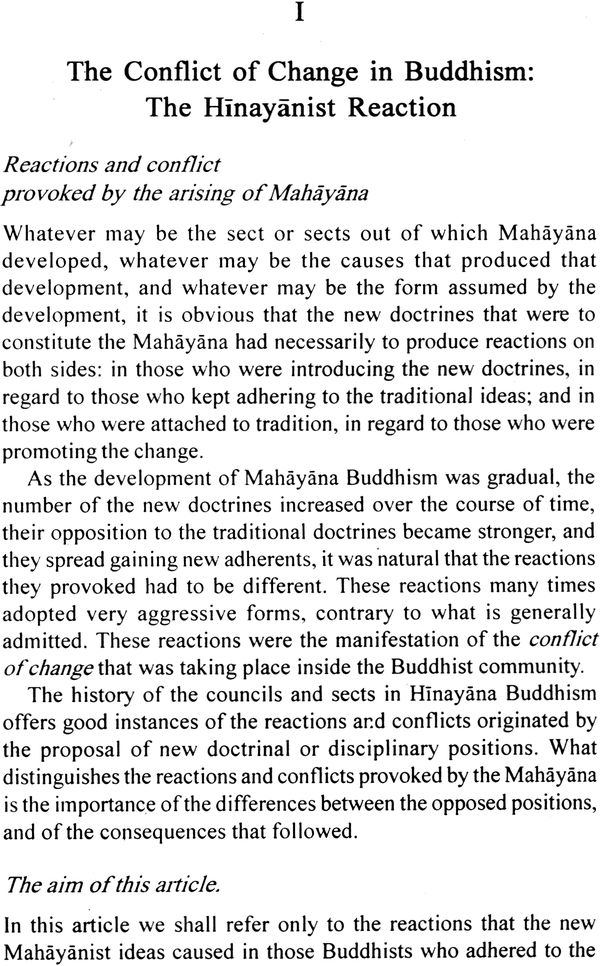
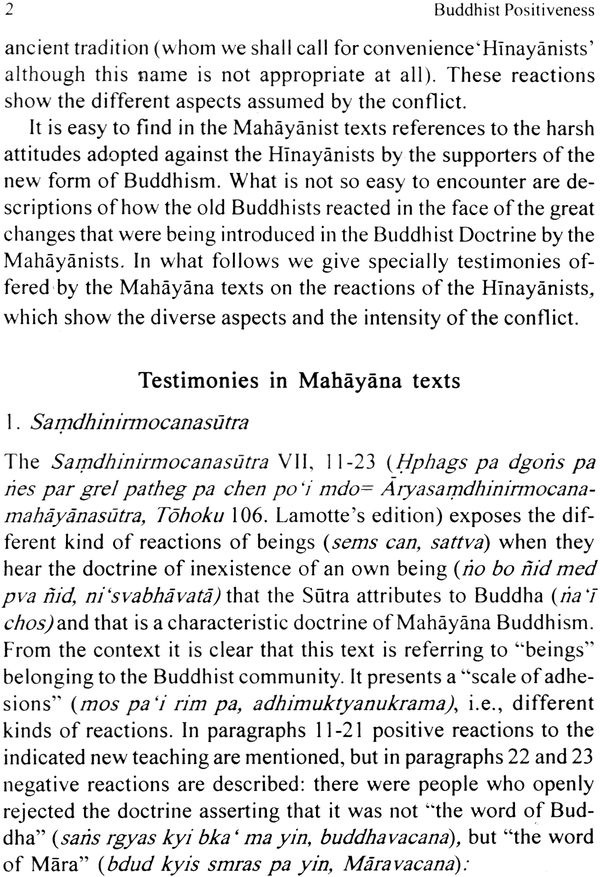
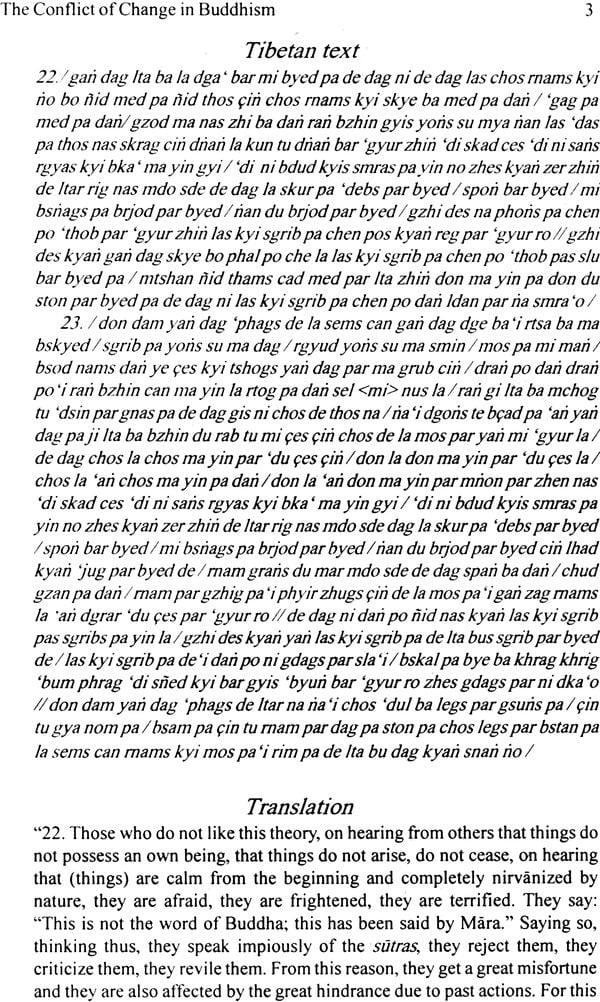
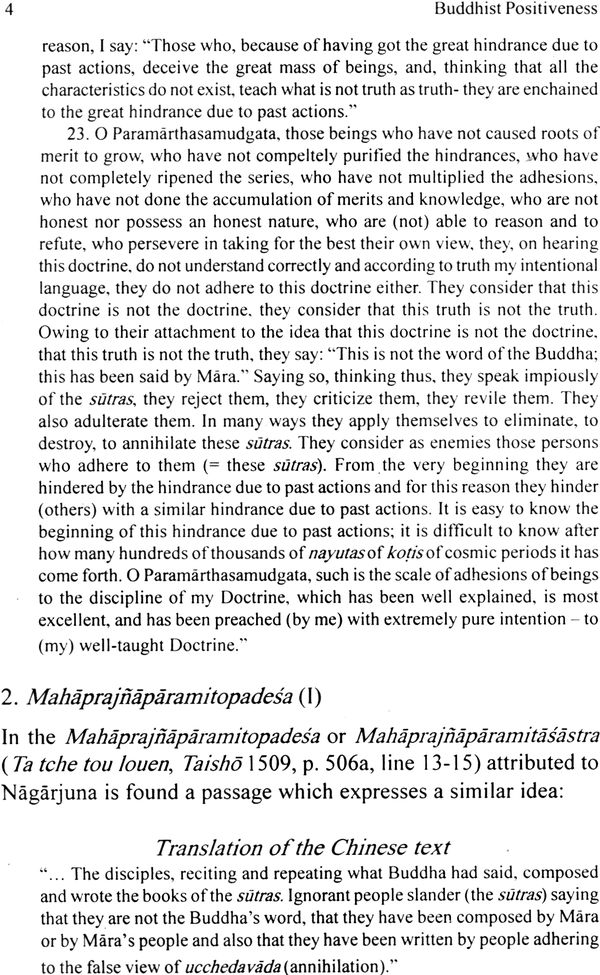
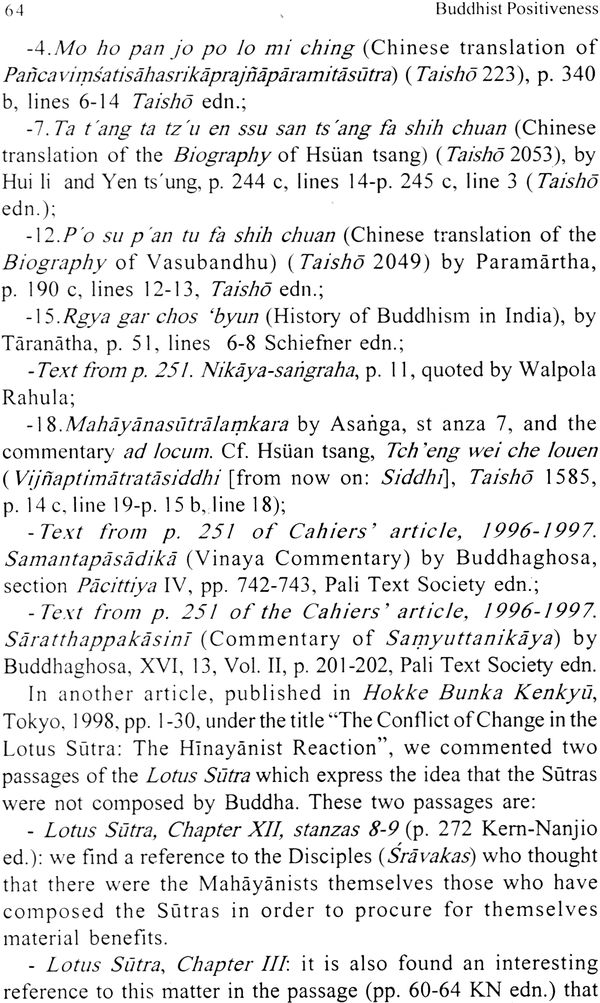
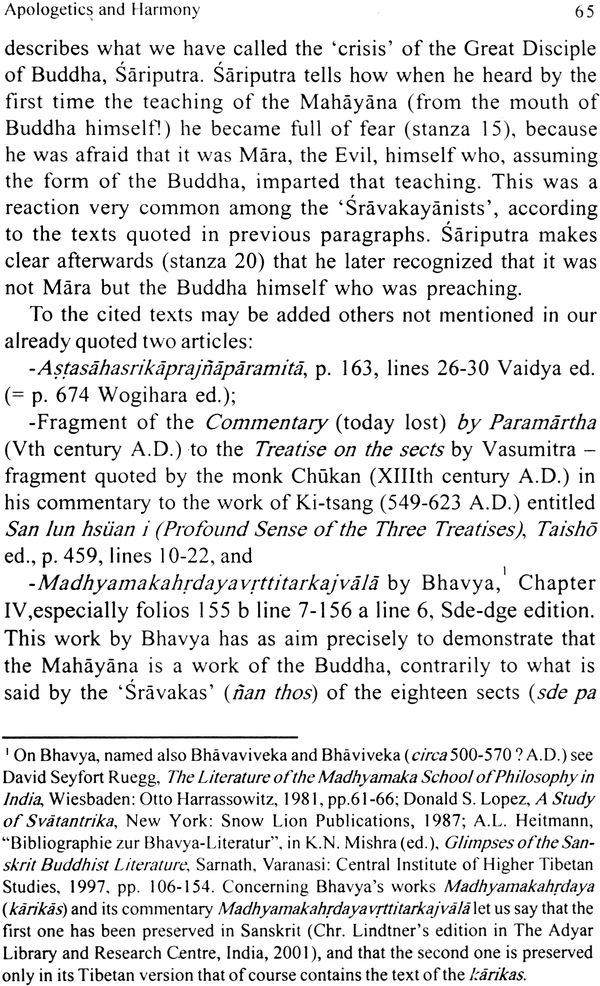
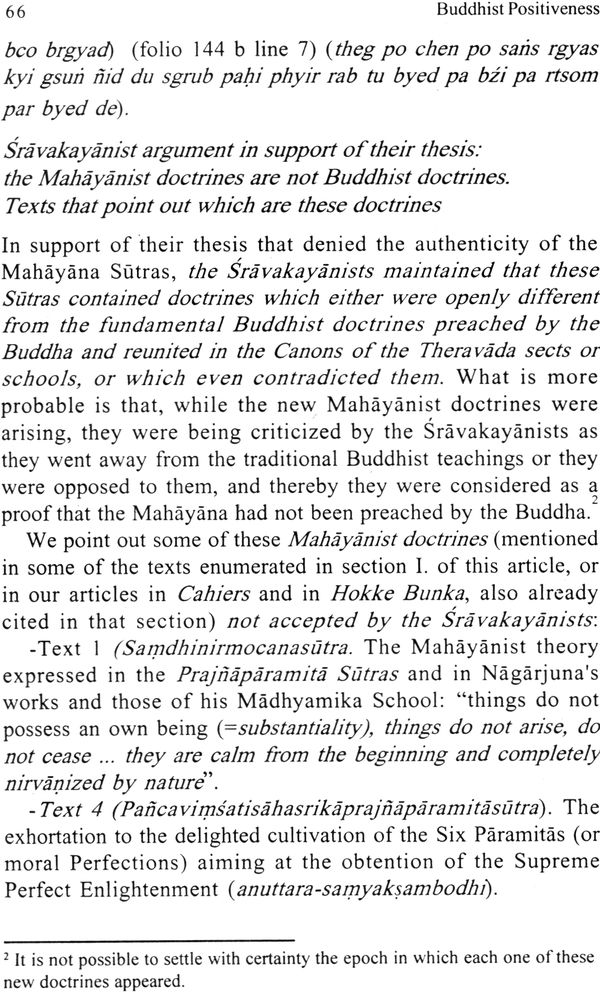
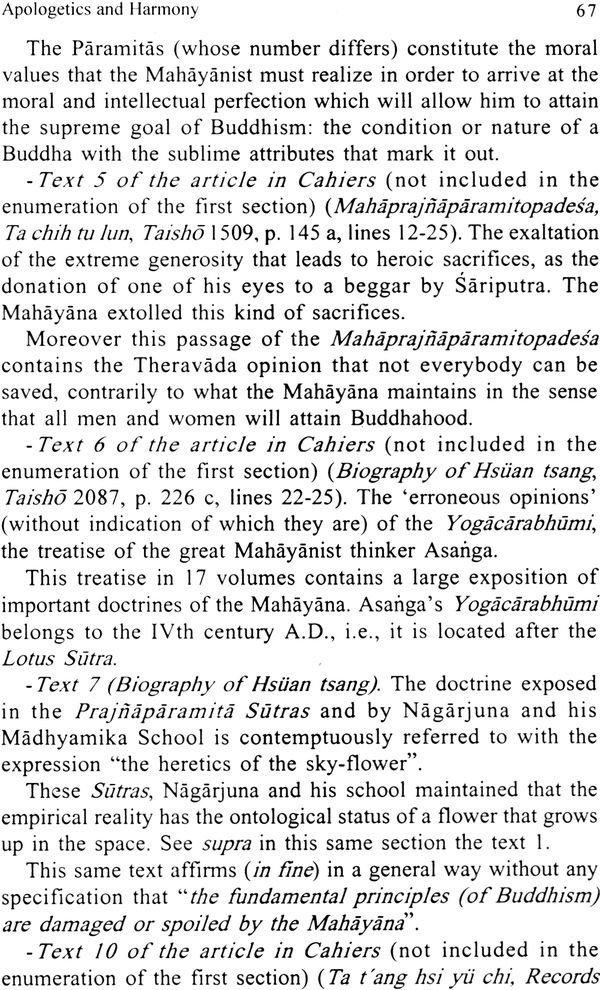
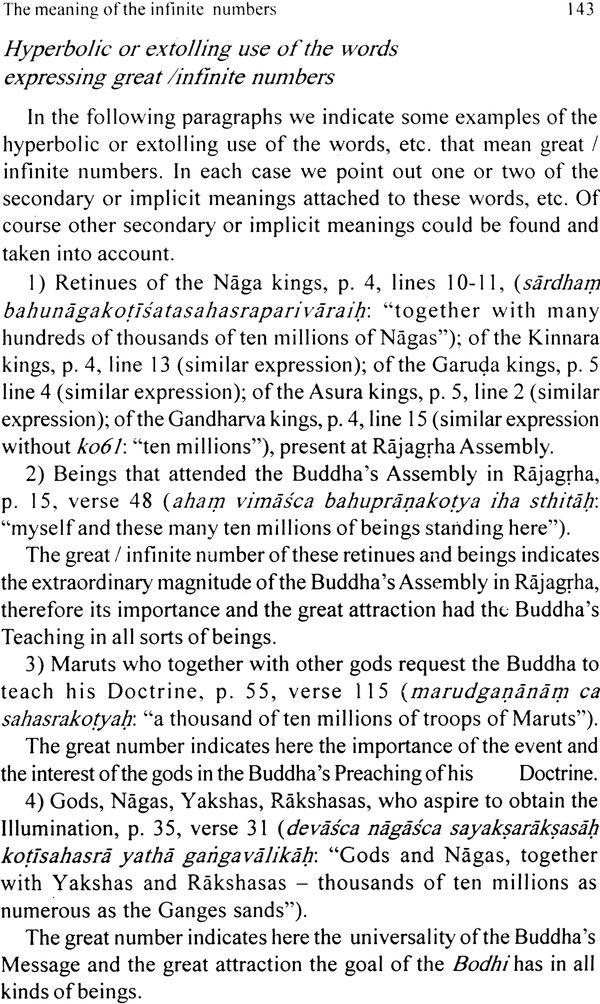
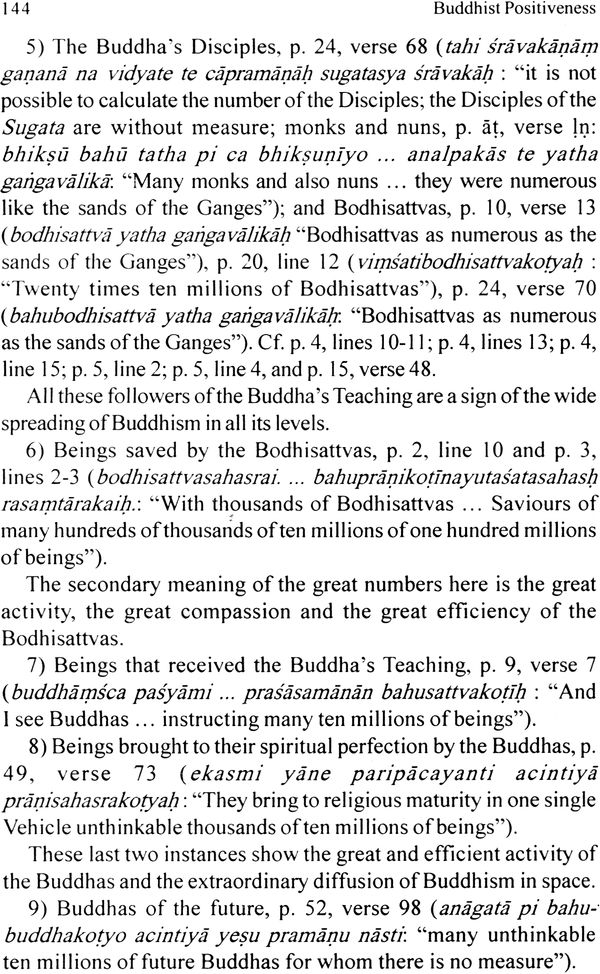
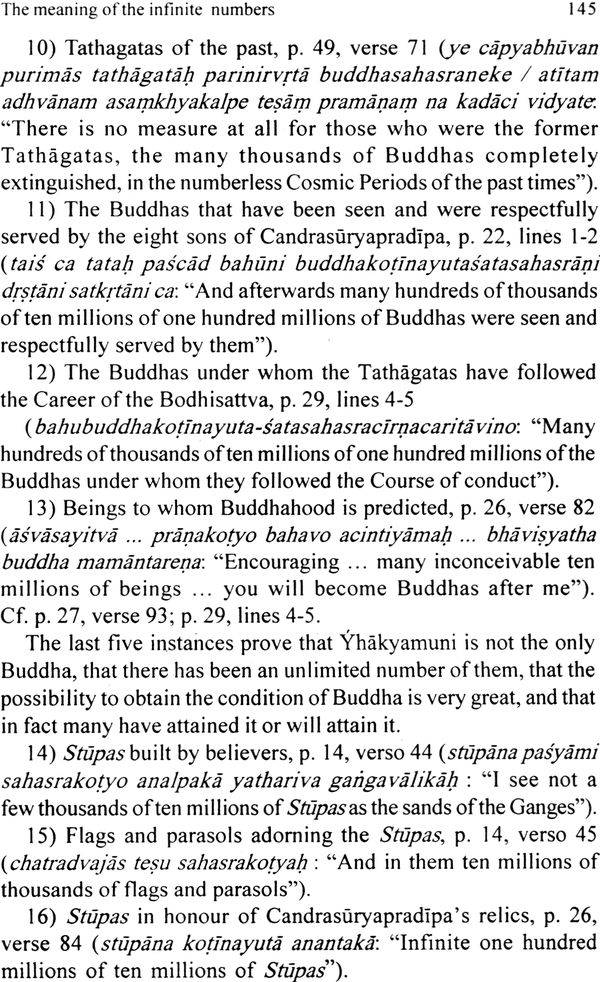
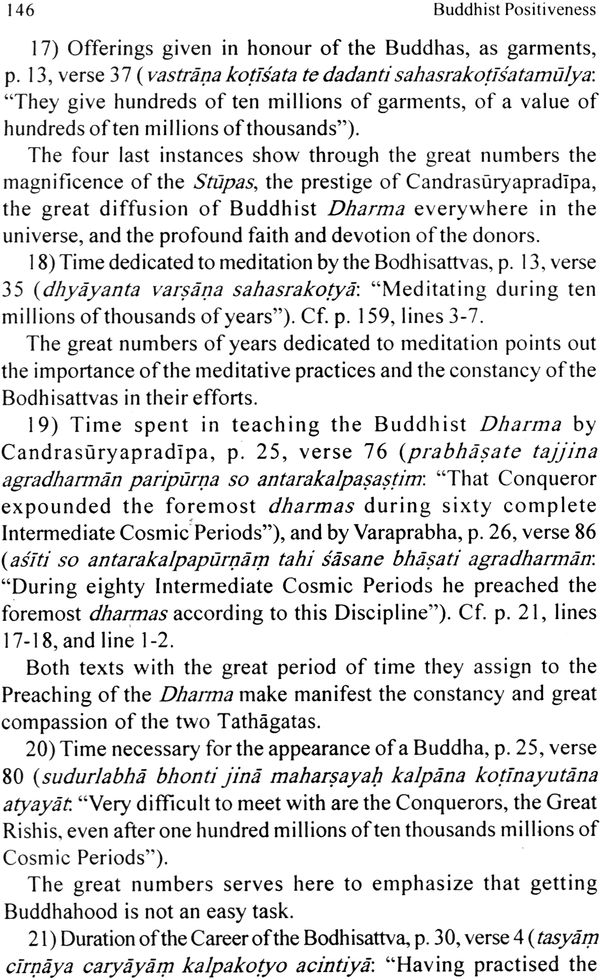
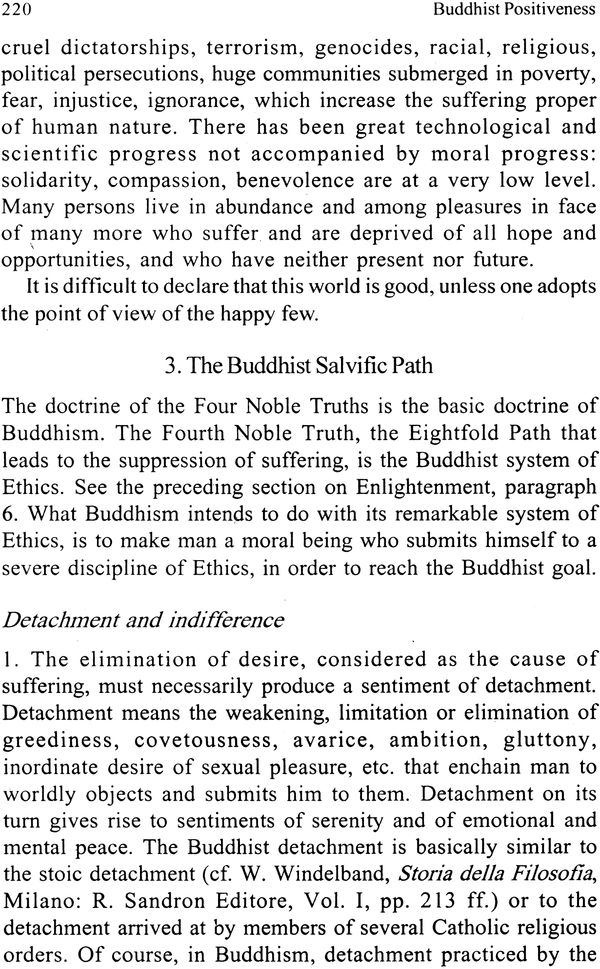
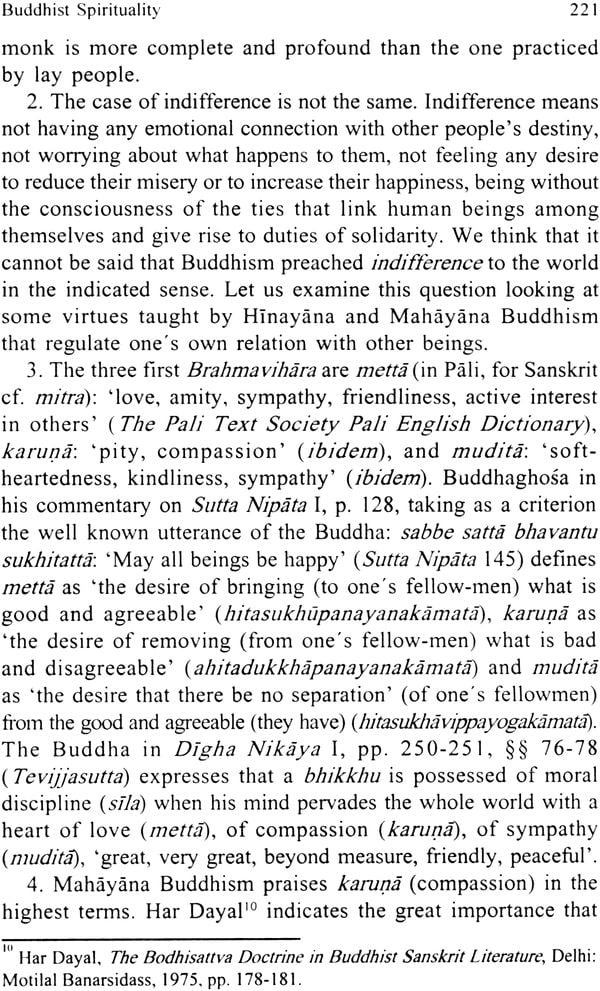
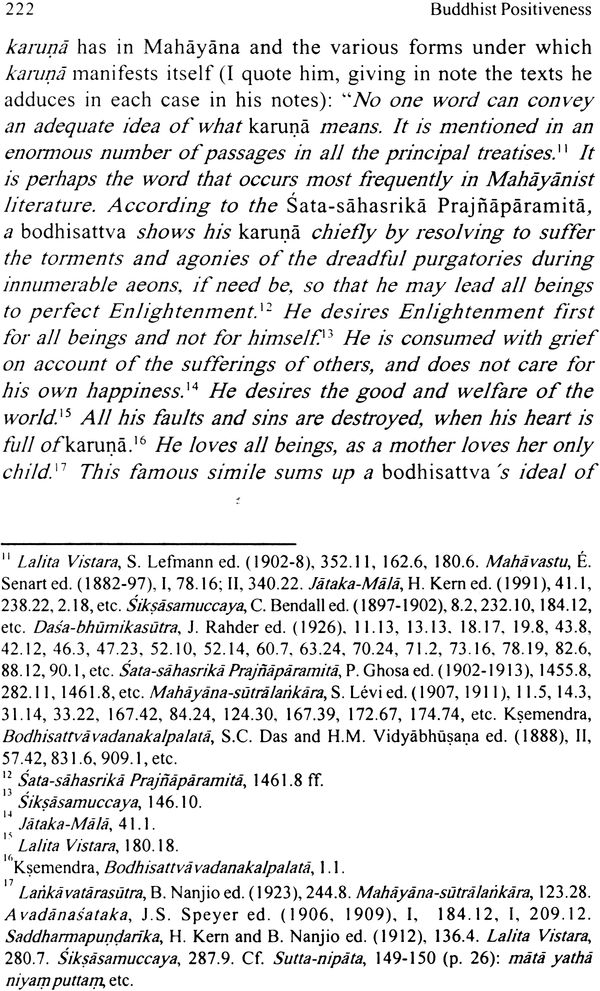
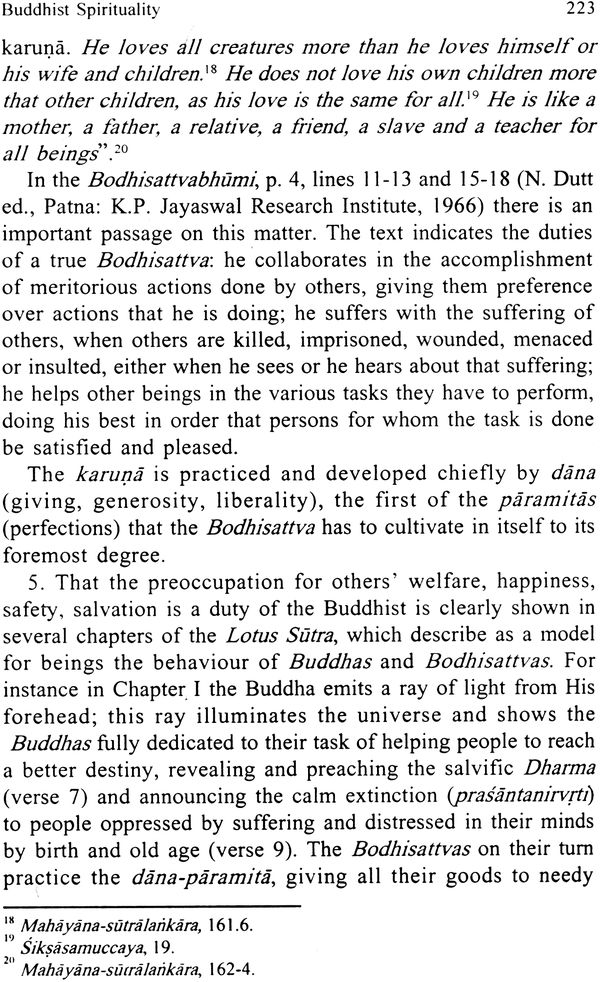
Delivery and Shipping Policy
- INTERNATIONAL SHIPPING
- Rs.1000-1100/kg
- ESTD. Delivery Time: 2-3 weeks (depending on location)
- Bubble Wrapped with Extra Padding
- NATIONAL SHIPPING
- NCR: Rs. 30/half kg
- Standard: Rs. 80/half kg
- Express shipments also available on Request
- ESTD. Delivery Time: Ranging from 1-4 days up to 7 business days (Depending on your choice of Delivery)
- TRACKING
- All orders; national or international, will be provided with a Tracking ID to check the status of their respective orders
- Depending on the Shipping Service, Tracking ID may be used on their respective tracking portals
Frequently Asked Questions (FAQs)
Domestic Shipping: 3-4 Days (after shipping)
International Shipping: 1-2 weeks (based on your location)
You will receive an email once your order has been shipped or you can email us if you didn't receive tracking details (info@mlbd.co.in)
Every book that we sell is the latest edition except all the rare books
Yes, we do provide free shipping, only on domestic orders (within India) above Rs.1500



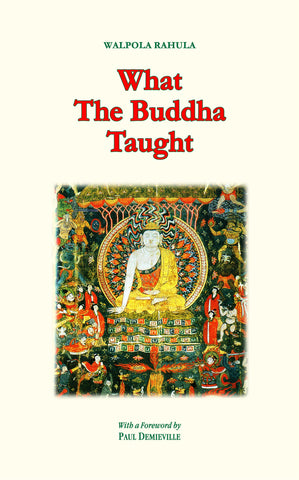
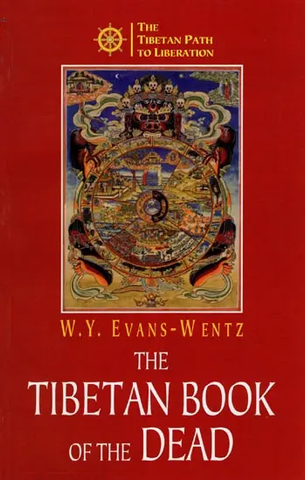
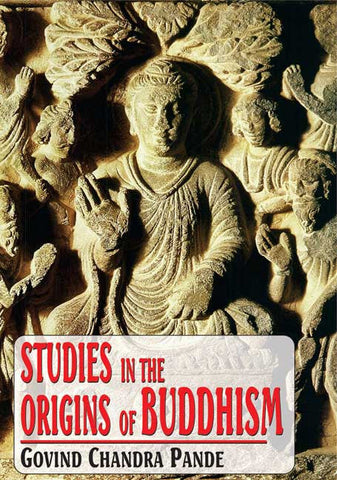
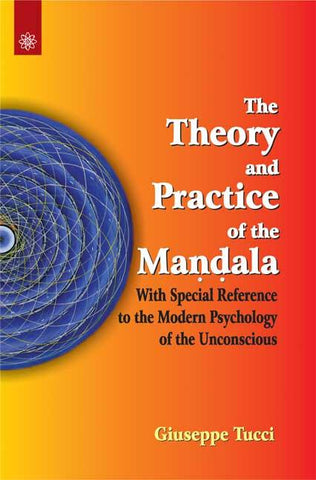
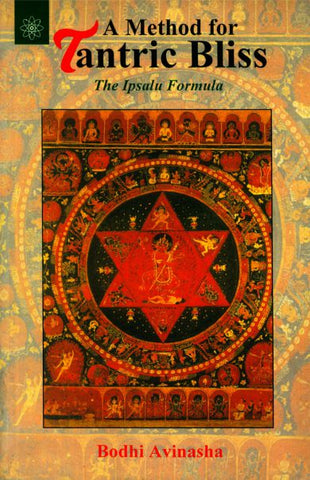
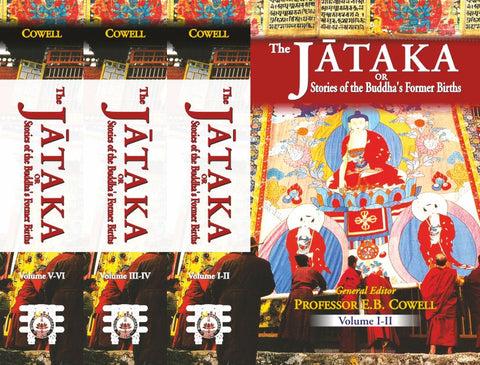
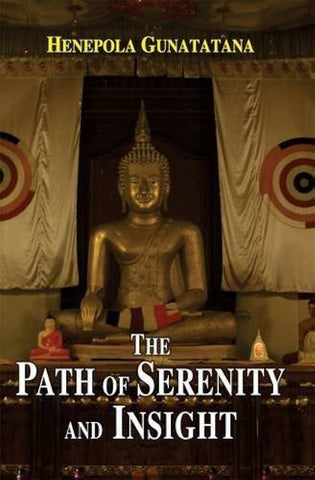
![The Rishukyo [Buddhica Britannica Vol.3]: The Sino-Japanese Tantric Prajnaparamita in 150 Verses (Amoghavajra's Version)](http://www.motilalbanarsidass.com/cdn/shop/products/RISHUKYO_large.jpg?v=1675417651)
